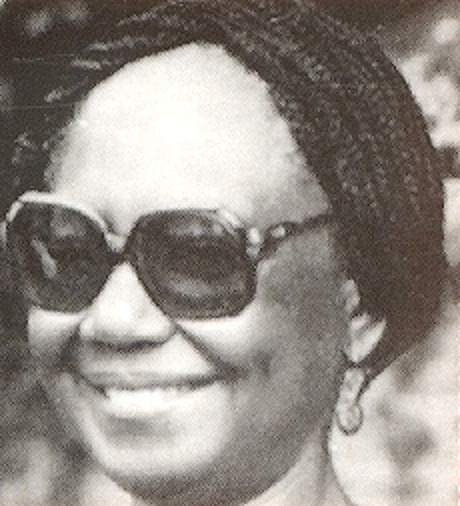Nwapa also is known for her governmental work in reconstruction after the Biafran War. In particular she worked with orphans and refugees who were displaced during the war. Further she worked as a publisher of African literature and promoted women in African society. She was one of the first African women publishers when she founded Tana Press in the 1970s. Nwapa's first book, Efuru, was published in 1966, a pioneering work as an English-language novel by an African woman writer. It was followed by the novels Idu (1967), Never Again (1975), One is Enough (1981) and Women Are Different (1986). She published two collections of stories — This Is Lagos (1971) and Wives at War (1980) — and the volume of poems Cassava Song and Rice Song (1986). She was also the author of several books for children.
 In the 1974 she founded Tana Press and in 1977 the Flora Nwapa Company, publishing her own adult and children's literature as well as work by other writers. She gave as one of objectives: "to inform and educate women all over the world, especially Feminists (both with capital F and small f) about the role of women in Nigeria, their economic independence, their relationship with their husbands and children, their traditional beliefs and their status in the community as a whole". Tana has been described as "the first press run by a woman and targeted at a largely female audience. A project far beyond its time at a period when no one saw African women as constituting a community of readers or a book-buying demographic."
In the 1974 she founded Tana Press and in 1977 the Flora Nwapa Company, publishing her own adult and children's literature as well as work by other writers. She gave as one of objectives: "to inform and educate women all over the world, especially Feminists (both with capital F and small f) about the role of women in Nigeria, their economic independence, their relationship with their husbands and children, their traditional beliefs and their status in the community as a whole". Tana has been described as "the first press run by a woman and targeted at a largely female audience. A project far beyond its time at a period when no one saw African women as constituting a community of readers or a book-buying demographic."Nwapa's career as an educator continued throughout her life and encompassed teaching at colleges and universities internationally, including at the University of Ilorin, New York University, Trinity College[disambiguation needed], University of Minnesota, and University of Michigan, . She said in an interview with Contemporary Authors, "I have been writing for nearly thirty years. My interest has been on both the rural and the urban woman in her quest for survival in a fast-changing world dominated by men." Flora Nwapa died from pneumonia on 16 October 1993 in hospital in Enugu, Nigeria, at the age of 62.